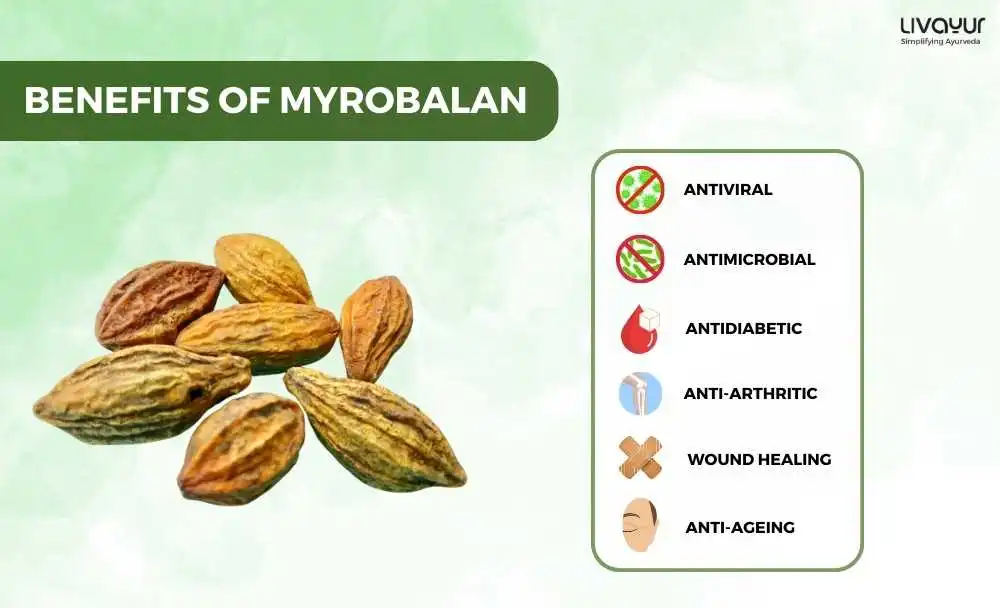
Myrobalan, also known as Terminalia chebula Retz., Haritaki and Harad, is a prized medicinal plant from the family Combretaceae. With its diverse applications in Ayurveda, Siddha, Unani, and homeopathy systems, Myrobalan has earned the prestigious title of the “King of Medicines” in Tibet [1]
Myrobalan Names in Different Languages
- Harad: Myrobalan in Hindi
- Haritaki: Myrobalan in Bengali
- Chebulic Myrobalan: English
- Karakkaya: Myrobalan in Telugu
- Kadukkai: Myrobalan in Tamil
- Harada: Myrobalan in Marathi
- Harade: Myrobalan in Gujarati
- Haleelaz: Myrobalan in Arabian
- Haleel: Myrobalan in Farsi
- Alale Kayi: Myrobalan in Kannada
- Ordo: Myrobalan in Konkani
- Katukka: Myrobalan in Malayalam
- Manahi: Myrobalan in Manipuri
- Hilika: Myrobalan in Assamese [6]
Let’s uncover the extensive Myrobalan uses and Myrobalan benefits in this article and incorporate this incredible herb into our lives [1].
Nutritional Value of Myrobalan
| Nutrient composition | Percentage |
| Aspartic Acid | 39.60% |
| Glutamic Acid | 8.60% |
| Arginine | 6.70% |
| Proline | 6.40% |
| Lysine | 5.00% |
The Many Myrobalan Benefits
1. Antibacterial Activity
Myrobalan exhibits potent antibacterial properties, attributed to compounds like gallic acid and ethyl ester. Studies have shown its efficacy against methicillin-resistant Staphylococcus and several other bacterial species. Notably, it is effective against Helicobacter pylori, the bacterium responsible for gastritis, ulcers, and stomach cancers. [1]
2. Antifungal Activity
The aqueous extract of Myrobalan has demonstrated antifungal activity against various dermatophytes and yeasts, including Candida albicans, making it a natural and promising antifungal agent. [1]
3. Antiamoebic and Immunomodulatory Activities
In experimental studies, Myrobalan has shown significant antiamoebic effects, curatively inhibiting caecal amoebiasis in rats. Moreover, it exhibited immunomodulatory properties by stimulating cell-mediated immune response while enhancing humoral immunity. [1]
4. Antiviral Activity
The extract of Myrobalan has been found to inhibit human immunodeficiency virus-1 reverse transcriptase and exhibit antiviral activity against herpes simplex virus and cytomegalovirus. Additionally, certain compounds in Myrobalan have been identified as potential HIV-type 1 integrase inhibitors. [1]
5. Antimutagenic and Anticarcinogenic Activities
Myrobalan’s fruit extract has been studied for its effect on malignant cell lines, showing inhibitory effects on cell viability and proliferation while inducing cell death. Furthermore, certain compounds like chebulagic acid have displayed potent dual inhibition against COX and 5-LOX, as well as anti-proliferative activity against various cancer cell lines. [1]
6. Antioxidant Activity
Myrobalan exhibits excellent antioxidant properties, which help combat harmful free radicals and oxidative stress. Various extracts and compounds from Myrobalan have shown anti-lipid peroxidation, anti-superoxide radical formation, and free radical scavenging activities, making it a powerful natural defense against cellular damage caused by reactive oxygen species (ROS). [1]
7. Antidiabetic and Retino-protective Activities
Studies have demonstrated that Myrobalan can significantly reduce blood sugar levels in both normal and diabetic rats. Continued daily administration of Myrobalan produced sustained effects on blood sugar regulation, indicating its potential as an adjunct in diabetes management. Moreover, Myrobalan has shown retinoprotective activity, protecting the kidneys from diabetic-induced damage. [1]
8. Antiulcerogenic Activity
Myrobalan has proven effective in protecting gastric mucosa from damage caused by aspirin and ethanol-induced ulcers. It exerts antisecretory effects by reducing gastric juice volume, free acidity, and total acidity and increasing gastric pH, indicating its potential as a natural remedy for ulcer prevention and management. [1]
9. Anti-arthritic Activity
The hydroalcoholic extract of Myrobalan has shown significant inhibition of joint swelling in arthritis models. This extract also reduced inflammatory markers like TNF-α, IL-6, and IL-1β, suggesting its potential as a disease-modifying agent in the treatment of rheumatoid arthritis. [1]
10. Wound Healing Activity
Myrobalan has demonstrated impressive wound-healing properties in animal studies. Topical administration of Myrobalan extract accelerated the healing process by increasing the rates of wound contraction and epithelialization. Additionally, it enhanced the levels of essential components like total protein, DNA, and collagen in the granulation tissues, contributing to faster tissue repair. [1]
11. Cytoprotective and Anti-Ageing Activities
Myrobalan contains compounds like gallic acid and chebulagic acid, which have been found to block cytotoxic T lymphocyte-mediated cytotoxicity, offering cytoprotective effects. Additionally, Myrobalan extract has shown potential in preventing oxidative stress and age-dependent telomeric DNA shortening, indicating its anti-aging properties. [1]
12. Cardioprotective Activity
Studies have shown that the ethanolic extract of Myrobalan fruits exhibits a remarkable cardioprotective effect. The extract’s pretreatment demonstrated cardio-protection by stabilizing lysosomal membranes, preventing myocardial necrosis, and preserving heart mitochondrial ultrastructure and function in experimental rats. This indicates its potential in safeguarding the heart from damage and enhancing cardiovascular health. [1]
13. Hepatoprotective Activity
Myrobalan has been shown to possess hepatoprotective activity against anti-tuberculosis drug-induced toxicity. The 95% ethanolic extract of Myrobalan fruit demonstrated prominent antioxidant and membrane stabilizing activities, contributing to its protective effects on the liver. [1]
14. Chemopreventive Activity
Research has indicated that Myrobalan extract treatment can prevent renal oxidative stress, toxicity, and cell proliferation response induced by nickel chloride in rats. This suggests its potential use as a therapeutic agent for cancer prevention, as it blocks or suppresses events associated with chemical carcinogenesis. [1]
15. Hypolipidemic and Hypocholesterolemic Activities
Myrobalan extract has shown hypolipidemic activity against experimentally induced atherosclerosis and hypocholesterolemic activity against cholesterol-induced hypercholesterolemia and atherosclerosis. Triphala formulation, which includes Myrobalan, has also exhibited hypolipidemic effects in experimental hypercholesteremic rats, indicating its potential in managing lipid and cholesterol levels. [1]
Ayurvedic Properties of Myrobalan
Myrobalan is known as Haritaki in Ayurveda. It possesses five Rasas (tastes) except for salt (Lavana). Its Vipaka (taste after digestion) is sweet (Madhura), and Virya (potency) is hot (Ushna). These unique properties bestow various pharmacological actions upon the plant, including rejuvenation (Rasayana), brain tonic (Medhya), appetite stimulation (Deepana), detoxification of toxins (Ama Pachana), and cleansing of channels by removing metabolic waste (Srotas-Shodhana). [2]
Traditional Myrobalan Uses
In Ayurveda, Haritaki or Myrobalan is not only used for internal but also for external medicinal purposes.
Internally, the fruit is used for the following purposes:
- Therapeutic Applications: Its utilization spans diseases like dementia, constipation, and diabetes, among others. [5]
- Hemorrhoids Relief: Taking 2-3g of Haritaki powder with jaggery before meals alleviates hemorrhoids (Arshas).
- Colitis Management: Chronic colitis benefits from Haritaki powder consumption with hot water.
- Motion Sickness Control: Mixing Haritaki powder with honey helps prevent or manage motion sickness and vomiting.
- Urinary Calculi Treatment: Haritaki seed powder with hot milk effectively treats urinary calculi.
- General Tonic: Fried Haritaki fruits powdered and mixed with ghee serve as a general tonic, enhancing vigor when taken twice daily.
- Hangover Management: A decoction of Haritaki with boiled milk helps manage hangovers (Madatyaya).
- Abdominal Pain Relief: Haritaki powder with ghee or dry grapes helps manage acid peptic disorder-induced colicky abdominal pain (Pittaja Shula). [6]
Externally, the fruit paste reduces swelling and aids in healing wounds. The oil of Myrobalan is also beneficial in healing burns [1]
Dosage of Myrobalan
The appropriate dosage of Myrobalan or Haritaki will depend on your medical condition as well as your Prakriti and Dosha imbalance. Therefore, you must consult an Ayurvedic practitioner before taking Myrobalan.
Precautions & Myrobalan Side Effects
Lean individuals with severe weakness and people who are fasting, experiencing mental depression, or have Pitta conditions should use Myrobalan with caution. Pregnant women should also avoid using it without medical advice. [1]
Interactions with other foods
While generally safe, certain conditions or situations warrant refraining from Haritaki consumption to ensure well-being and avoid potential complications.
Avoid Haritaki If You:
- Are pregnant
- Recently donated blood
- Experience fatigue
- Have diarrhea
- Are dehydrated
- Take anti glycemic medications, such as insulin or alpha-glucosidase inhibitors
FAQs
1. How Is Myrobalan Used in Ayurveda?
Myrobalan is most commonly used as a constituent of the herbal formulation ‘Triphala,’ which helps relieve chronic constipation, detoxify the colon, improve digestion, and rejuvenate the body. However, it can be used separately as a therapeutic herb for certain medical conditions as well.
2. Can Myrobalan aid in diabetes management?
Studies have shown that Myrobalan can significantly reduce blood sugar levels, making it a potential adjunct in diabetes management.
3. Are there any precautions for using Myrobalan?
Myrobalan is supposed to be used with caution if you have a lean physique with severe weakness, are fasting, experiencing mental depression, are pregnant, or suffering from Pitta conditions.
4. Are there any Myrobalan products on the Zandu e-store?
No, but it’s possible to find products with comparable advantages similar to Zandu Turmeric (Haridra) Pure Herb, which acts as an antioxidant. These products can be highly advantageous for skincare, leading to glowing and radiant skin when used consistently. Additionally, these supplements can also contribute to weight management and support liver health, making them beneficial for overall well-being.
5. Can Myrobalan be taken daily?
Yes, Myrobalan can be taken daily, especially if consumed in permissible dosage and through formulations like Triphala. Nevertheless, you must consult a qualified healthcare professional before taking Myrobalan regularly.
Conclusion
Myrobalan, also known as Haritaki, is a highly esteemed medicinal plant with a rich history in Ayurveda. Its diverse pharmacological properties, including antibacterial, antifungal, immunomodulatory, and antioxidant activities, make it a valuable natural remedy for various health conditions. From treating gastrointestinal ailments to offering cardioprotective effects, Myrobalan uses and benefits are numerous. However, it is essential to exercise caution and seek professional guidance before using Myrobalan, especially during pregnancy or specific health conditions.
Disclaimer
The information provided here is for general information and not meant to substitute any medical advice. Please consult your doctor for appropriate medical consultation.
References
- Biological and pharmacological properties of Terminalia chebula Retz. (Haritaki) – An overview
- A Critical Review of Pharmacological Actions of Haritaki (Terminalia chebula Retz) In Classical Texts
- Nutritive value of the chebulic myrobalan (Terminalia chebula Retz.) and its potential as a food source
- Myrobalans
- Potential therapeutic applications for Terminalia chebula in Iranian traditional medicine
- PRAGMATIC USAGE OF HARITAKI (TERMINALIA CHEBULA RETZ): AN AYURVEDIC PERSPECTIVE VISÀ-VIS CURRENT PRACTICE














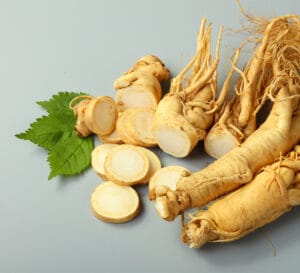
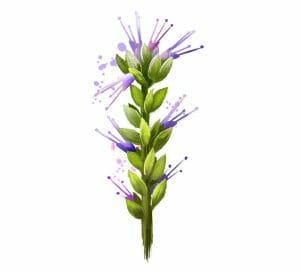
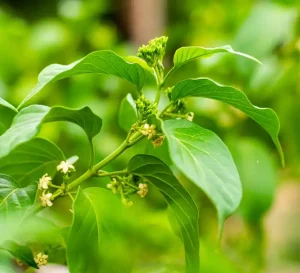

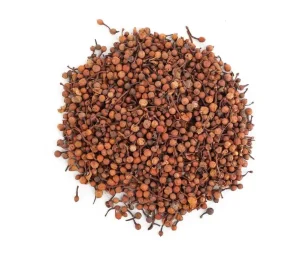



15 Comments